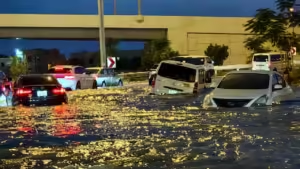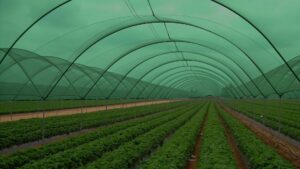Tarpaulins or tarps may seem simple, but their real-world impact is anything but. From emergency shelters to heavy-duty industrial covers, tarps play a critical role in protection, storage, and logistics. At Exclusive Tarps, we specialise in not just selling tarpaulins, but solving problems through quality, custom-fitted solutions.
In this comprehensive guide, we dive into what tarpaulins are, the various types available, their most practical uses, and how they’re evolving with sustainability and innovation. Whether you’re a contractor, logistics manager, or homeowner, this guide will help you make informed decisions and get the best return on your investment.
What Exactly is a Tarpaulin?
Tarpaulins, commonly referred to as tarps, are large, flexible sheets made from strong materials like polyethylene, canvas, or PVC. Designed for durability and weather resistance, these sheets are used across industries and homes for protection against dust, debris, rain, and sun.
Whether it’s a lightweight tarpaulin sheet for temporary cover or a heavy-duty, custom-fitted tarp for industrial storage, these versatile products serve as essential protective barriers in everyday and emergency scenarios.
Need a custom size or design? Explore our Custom Tarpaulin Solutions
Practical Applications: How Tarpaulins Solve Real-World Problems?
1. Everyday Uses for Tarpaulins
Tarpaulins have become a go-to solution for countless everyday challenges. From home improvement projects to farming and logistics, their water-resistant and tear-resistant properties make them ideal for:
- Covering vehicles, boats, and outdoor equipment.
- Protecting building materials on construction sites.
- Lining surfaces during painting or renovation jobs.
- Creating makeshift shades, tents, or partitions.
Pro Tip: When selecting a tarp for general use, look for waterproof tarpaulins with UV protection for outdoor longevity.
2. How Tarpaulins Provide Relief in Disaster Situations?

During natural disasters, tarpaulins play a life-saving role. Relief agencies use heavy-duty, waterproof tarpaulins to:
- Create temporary shelters for displaced families.
- Cover broken roofs or damaged infrastructure.
- Protect supplies like food, water, and medical aid from the elements.
Custom tarps are particularly useful here, allowing aid workers to size solutions to exact needs.
Helping those in need? We offer fast-turnaround custom tarps for emergency use. Contact us for urgent supply.
3. Custom Tarps for Smart Storage Solutions
Standard tarps don’t always fit the bill, especially when protecting specific items or unusual shapes. That’s where custom tarpaulins come in.
Businesses and homeowners alike use them to:
- Create precise coverings for machinery and tools.
- Store firewood, garden furniture, or seasonal equipment.
- Protect inventory in warehouses or while in transit.
Tailor-made tarpaulins ensure full coverage, improved durability, and long-term weather protection.
Looking to protect your assets? Get a custom-fitted tarp that lasts. Design yours now
Types of Tarpaulins We Offer

At Exclusive Tarps, we provide a wide range of tarpaulin sheets to meet diverse needs. Our collection includes:
- Canvas Tarpaulins: Breathable and eco-friendly, perfect for covering items that need ventilation.
- PVC Tarpaulin: Durable, waterproof, and ideal for industrial and commercial use.
- PE Tarpaulin (Polyethylene): Lightweight yet strong, suitable for general-purpose outdoor protection.
- Flame-Retardant Tarps: Ideal for high-risk environments like welding or construction.
- Custom Tarps: Tailored in size, shape, and material for precise protection.
Not sure which tarp you need? Get expert advice with our quick consultation. Talk to a tarp specialist.
What are Tarpaulins Made From? A Look at Common Tarp Materials
The performance and durability of a tarpaulin depend largely on the material it’s made from. At Exclusive Tarps, we work with premium-grade materials selected for strength, flexibility, and purpose-specific use:
- Polyethylene (PE): Lightweight, cost-effective, and waterproof. Ideal for temporary outdoor applications.
- Polyvinyl Chloride (PVC): Highly durable, UV- and flame-resistant, and best for heavy-duty industrial use.
- Canvas: A breathable, natural fibre option, great for covering equipment or supplies that need ventilation.
- Mesh: Allows airflow while still offering coverage, used in agriculture and scaffolding covers.
Need help choosing the right material? Get in touch for expert guidance
What Makes Our Tarpaulins Stand Out?
Not all tarps are created equal. Here’s what you get when you buy from Exclusive Tarps:
- ✅ Waterproofing & UV Resistance: Our tarpaulins withstand rain, sun, and harsh weather, protecting your assets all year round.
- ✅ Reinforced Edges & Rust-Resistant Eyelets: Built for long-lasting performance and easy tie-downs.
- ✅ Custom Sizing: Whether you need a compact tarp for storage or a massive cover for industrial use, we tailor it to your needs.
- ✅ Multiple Colour Options: Choose from various colours based on visibility, branding, or aesthetic preferences.
Protect better, last longer. Browse our high-performance tarps now
Buying a Custom Tarpaulin? Here’s What to Consider First

When investing in a custom tarp, it’s important to make an informed decision. Here are the top factors to evaluate:
- Purpose & Environment: Will it be used indoors, outdoors, on a truck, or in a warehouse? Exposure dictates the material you should choose.
- Size & Fit: Measure your space or item carefully. A good fit improves protection and reduces wear.
- Material Type: Choose based on durability, breathability, and water resistance.
- Fixing & Grommets: Think about how you’ll secure it — rope, bungee cords, or hooks — and where the eyelets should be placed.
- Budget vs. Longevity: A higher-quality tarp may cost more upfront, but will last significantly longer.
Ready to design your tarp? Submit your custom requirements
Tarpaulin Care Tips: Keep It Performing Like New
A quality tarp can serve you for years, but only with proper care. Here’s how to maximise your tarp’s lifespan:
- Clean Regularly: Remove dirt, mould, and debris using mild soap and water.
- Dry Before Storing: Avoid mould and mildew by ensuring it’s fully dry before folding and storing.
- Store in a Cool, Dry Place: Keep it out of direct sunlight when not in use.
- Check for Damage: Periodically inspect for tears or fraying, and repair small issues before they worsen.
- Use Proper Anchoring: Reduce strain by securing tarps with the right tension, not too tight, not too loose.
Want your tarp to last longer? Our tarps come with maintenance guides. Get yours with your next order
Sustainable Tarpaulins: A Green Shift in Construction Practices

As the construction industry pushes for eco-friendly practices, sustainable tarpaulins have become key players in reducing environmental impact.
Here’s how tarpaulins contribute to greener projects:
- Reusable Materials: High-quality tarps can be reused across multiple jobs, lowering waste and reducing plastic reliance.
- Eco-Friendly Options: Canvas tarpaulins are biodegradable and breathable, making them ideal for environmentally sensitive applications.
- Energy Efficiency: By protecting materials and reducing damage, tarps reduce the need for replacement goods, which saves both energy and resources.
Building green? Ask us about eco-friendly and reusable tarp options tailored to sustainable builds. Contact us today
Innovations and Industry Challenges: Where Tarpaulins Are Evolving
Like many industries, the tarpaulin sector is adapting to meet changing customer needs and global demands. Here are some notable developments:
1. Current Challenges
- Plastic Waste & Recycling: Most tarps are made from synthetic materials, and end-of-life recycling is still a hurdle.
- Extreme Weather Resistance: With climate volatility increasing, there’s growing demand for tarps that endure harsher conditions.
- Fake Quality in the Market: Low-grade imports often flood the market, causing confusion about real durability.
2. Innovations on the Rise
- Smart Tarps: Featuring embedded sensors to monitor temperature, humidity, or tampering — useful in logistics and sensitive cargo.
- Modular Tarp Systems: Designed to be expandable and adaptable to different shapes, minimising waste.
- Coatings & Treatments: Improved waterproofing, UV-resistance, and fire retardancy are becoming standard.
Innovation meets reliability. Our tarps blend traditional durability with the latest material technology. Explore the latest range
What’s Next? Future Trends and Opportunities in the Tarpaulin Market
The global demand for versatile protective solutions is only growing, and tarpaulins are evolving fast. Here are key trends shaping the future:
- Customisation at Scale: More businesses demand precision-fit solutions, not one-size-fits-all, driving growth in made-to-order tarpaulin production.
- Sustainability Mandates: As regulatory bodies push for greener construction and transport solutions, eco-tarps will see rising demand.
- Integration with Tech: Expect more smart features, such as GPS tracking and damage detection, particularly for logistics use.
Be future-ready. We help businesses future-proof their protection needs with advanced and sustainable tarpaulin options. Let’s talk innovation
Conclusion: Why Quality Tarpaulins Are Worth the Investment?
Whether you’re seeking everyday protection or industrial-grade custom covers, tarpaulins are essential assets that pay for themselves in durability, versatility, and peace of mind. With innovations in materials, sustainability, and customisation, they continue to evolve into smarter, greener solutions.
At Exclusive Tarps, we’re proud to lead this evolution, offering quality you can rely on, support you can trust, and customisation that fits like a glove.
Let us cover what matters most to you. Request a custom quote today or speak to our experts.
Frequently Asked Questions
Is tarpaulin 100% waterproof?
Not all tarpaulins are 100% waterproof — it depends on the material and construction.
- PVC tarpaulins are fully waterproof, ideal for heavy-duty outdoor protection.
- Polyethylene tarps are water-resistant to waterproof, depending on thickness and lamination.
- Canvas tarps are usually water-resistant and breathable, but not fully waterproof unless treated.
Need 100% waterproof coverage? Ask us for material recommendations before you buy.
Can I use tarpaulins for long-term outdoor storage?
Yes — as long as you choose the right grade and material.
For long-term storage, opt for:
- UV-stabilised tarpaulins
- Reinforced edges
- Proper anchoring to prevent flapping and tearing
Using a lightweight tarp for long durations can lead to faster wear and less protection.
How do I measure for a custom tarpaulin?
To get accurate sizing:
- Measure the length, width, and height (if covering a 3D object).
- Add extra allowance if you need drape coverage or overlap.
- Consider where the eyelets or tie-downs need to be for secure fastening.
Need help? We offer free measurement guidance when you request a quote.
Are tarpaulins safe to use in high-temperature environments?
Standard PE tarpaulins may deform under high heat. If you’re working in or near:
- Welding areas
- Kitchens or commercial cooking zones
- Direct high-temperature exposure...then choose a flame-retardant or heat-resistant PVC tarp.
Safety first. Request our flame-retardant range for industrial use.
Do tarpaulins come with a warranty or after-sales support?
At Exclusive Tarps, we provide:
- Warranty on material quality and manufacturing defects (terms apply)
- Support for proper usage and maintenance.
- Guidance for storage and cleaning to maximise tarp lifespan.
Peace of mind matters. Contact us to learn more about our after-sales policy.




